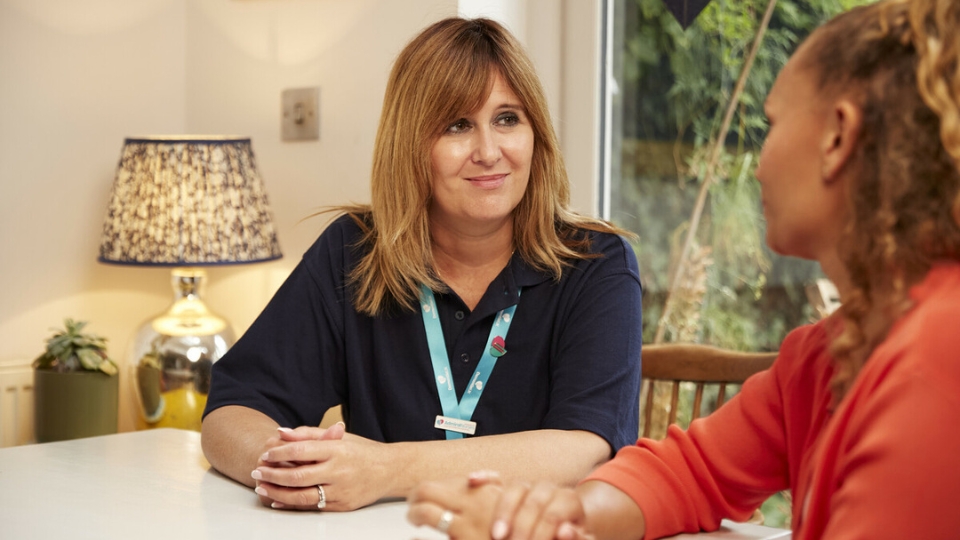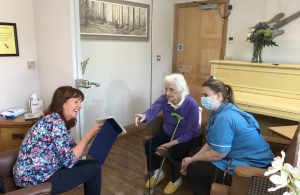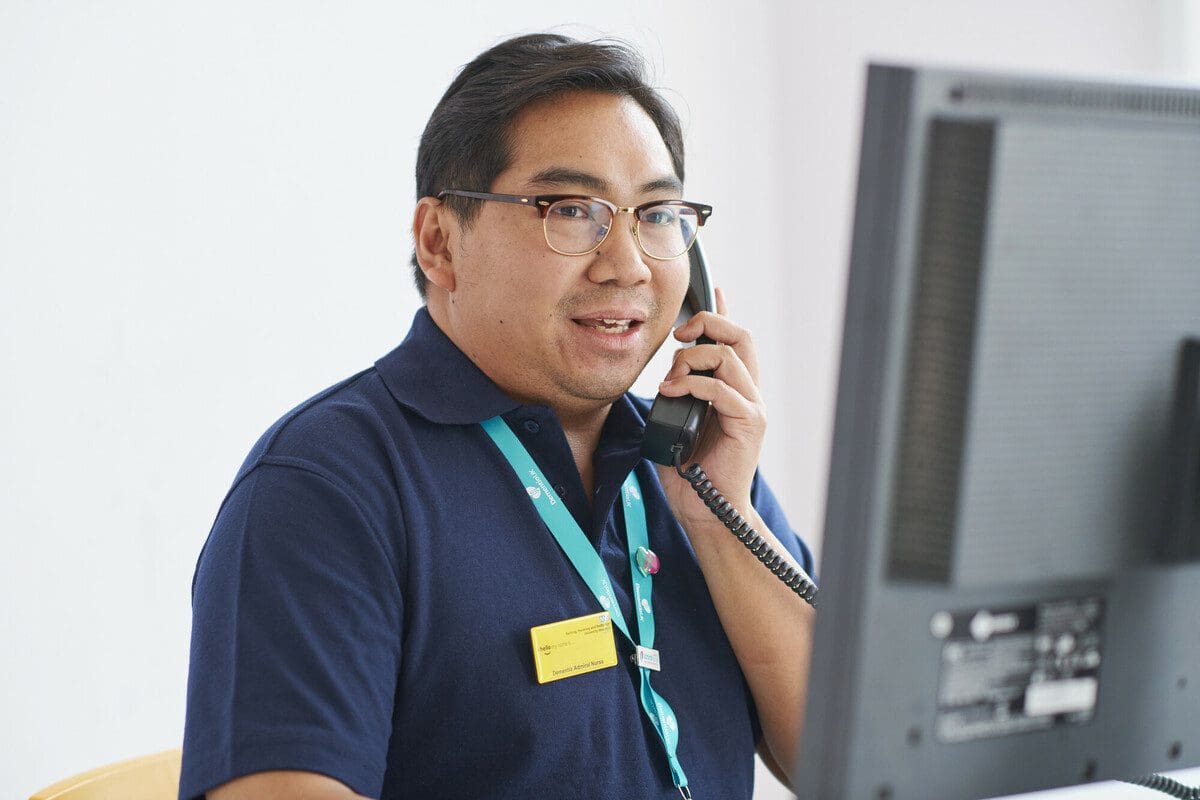
What is an Admiral Nurse and how can they help?
An Admiral Nurse is a dementia specialist nurse that provides life-changing care for families affected by all forms of dementia.
Care homes have been particularly affected by the coronavirus pandemic; challenges around residents being denied visits from their loved ones have been added to by a lack of testing and, in some instances, PPE. We spoke to Admiral Nurse Cathrina Moore who works at the specialist dementia facility Chapel House Care in Cheshire. Cathrina introduced an innovative project for the betterment of residents and families’ lives at this time.

Cathrina has been running Chapel House Care since 1995. Despite her years working in dementia care, the challenges which lay ahead and the way in which coronavirus would affect the residents she had developed very close bonds with were no easier to bear. Cathrina knew that problems were there from the outset due to the vulnerability of her residents and how much they relied on regular visits for mental wellbeing, which can have effects on physical wellbeing as well.
Like a diagnosis of dementia, Cathrina said that each resident had a different response to the virus, with some having to self-isolate because of pre-existing health conditions. The situation heightened in complexity as a small number of residents contracted the virus causing intense anxiety for the other residents and for family members.
Throughout her time at Chapel House Care, Cathrina has come across a number of strong family relationships. This provided the momentum for the team at Chapel House Care to do their best for the families affected by dementia. “You do have to adapt the communication and we tried to keep that communication going with the families as much as possible.”
Cathrina and her team would send photos of the rooms of family members and the care home so the families could see that their relatives were being looked after. The team would also try Zoom calls with relatives and their families, which wouldn’t always be the best option due to limited understanding of the technology for the person with dementia.
Cathrina soon after came up with an innovative idea for visitor pods, originally borrowed from a Dutch model. “We’ve had to be so inventive as this pandemic has progressed. These visitor pods have been an absolute lifeline to keep the bonds between families going.”
The rooms themselves have a frameless glass door to allow families to regularly see each other in a way which is as unobtrusive as possible. There is some natural acoustic in the room enhanced by an intercom system providing families with a vital opportunity to reminisce.
As for what Cathrina would like to see from the government to allow her and her team to continue doing their jobs the best way they can? “Whilst new guidance has been released for England, there are still a number of ways in which it falls short. It is the case that only one family member should visit a relative in care which can be distressing if the person with dementia has an extended family who they love dearly,” she told us. “However the visitor pods mean more than one family member can visit, whilst those who cannot get to the pods due to frailty or being in end of life care are restricted to one visitor – the latter is subject to risk assessment by the home,” Cathrina continued.
Whilst coronavirus has without a doubt led to a fundamental shift in society, Cathrina stressed that there are some positives to come from this, including the fact that it has led to a change in the way that Chapel House Care will streamline their service moving forward. There has for example been a reduction in falls and other accidents since the start of the pandemic. Cathrina said that the reason for this is her staff’s immense dedication to supporting residents at this difficult time, and of course the family visits bringing residents stimulation. Cathrina and the wider Chapel House Care team will be seeing how this can be best continued.
One family carer, Andrew Moreland finally got a chance to see his mother with dementia through the visitor pods. “The only thing mum wanted was to see us and all a sudden we were there; she was delighted,” he said.
Dementia UK is part of One Dementia Voice, a consortium of dementia charities who have recently called for better care and support from government for families whose relatives with dementia are in care.

An Admiral Nurse is a dementia specialist nurse that provides life-changing care for families affected by all forms of dementia.

Call or email our Dementia Helpline/Alzheimer's Helpline for reassuring and practical advice from our specialist team of Admiral Nurses.